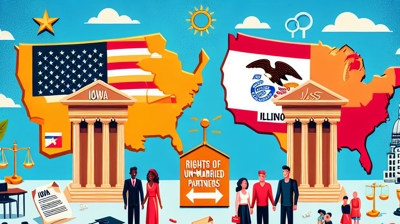
Rock Island Guardianship & Conservatorship Attorney
Guardianship & Conservatorship Assistance Throughout Rock Island, IL, Atlanta, GA and Chicago, IL
When someone seeks the guardianship or conservatorship of a minor child or incapacitated adult, they ask the applicable court permission to take over the personal or financial affairs of the protected person, respectively. These arrangements can become necessary in a variety of scenarios, including when someone becomes disabled due to injury or illness, experiences mental decline, or simply wishes to have another person make decisions for them.
Each guardianship or conservatorship is unique in scope and outcome. A guardianship or conservatorship can last months, years, or sometimes even decades. Managing these processes throughout the life of the guardianship or conservatorship, which may include passing the assets of the protected person into an estate planning instrument, tends to offer both opportunities and challenges.
At Greenwood Law, we help guardians and conservators overcome obstacles and fulfill their legal responsibilities. Our experienced Rock Island guardianship and conservatorship lawyer can represent you in court proceedings if you need assistance establishing one or both of these arrangements. We are completely familiar with the evolving laws governing guardianships and conservatorships in Illinois and Iowa, including new changes that introduced additional safeguards in some areas. Our firm is committed to providing you and your family with quality legal guidance, and we will be here for you whenever you have questions or concerns.
Schedule a free initial guardianship consultation by calling (855) 528-6022 or contacting us online. We are a veteran-owned law firm and proudly offer discounts to active and retired military service members, disabled veterans, and union members.

Understanding the Difference Between Guardianships and Conservatorships
The terminology surrounding guardianships and conservatorships can sometimes get confusing, especially as the precise language can sometimes differ from state to state. The person who is the subject of the guardianship or conservatorship – a minor child or an incapacitated adult – is either known as the “protected person” or “the ward.”
A guardian is in charge of the protected person’s well-being. This means they oversee personal affairs, including where the protected person lives, their access to necessities, and the medical care they receive.
A conservator manages the protected person’s financial affairs. They will take legal possession of the protected person’s assets and must keep records of how they handle them. A conservatorship is also sometimes called a “guardianship of the estate.”
A protected person may not necessarily need both a guardianship and a conservatorship. They may only need one or the other. If they do require both, the guardian and the conservator do not necessarily need to be the same person.
When Does Someone Need a Guardianship or Conservatorship?
You may be wondering if seeking a guardianship or conservatorship is necessary, especially if your loved one seems capable of making some decisions on their own. The court will heavily scrutinize requests for a guardianship or conservatorship, so it is important to understand when these arrangements become necessary under the law.
A minor child needs a guardianship or conservatorship if:
- Both of their parents are deceased, or
- Both parents cannot be found, or
- Both of their parents are unfit
In other words, a minor child always needs at least one “fit” parent. A parent may be considered unfit if they are abusive or unable to adequately care for the child. In situations where both parents pass away, they may request a guardian to care for their child in their will. Illinois and Iowa courts tend to honor these requests.
An adult may need a guardianship or conservatorship if:
- They become disabled due to an injury or illness
- They develop a severe substance abuse problem that prevents them from caring for themselves
- They experience significant mental decline as they grow older
- They no longer wish to make their own decisions
You should get legal advice before attempting to establish a guardianship or conservatorship. These arrangements are not always preferable, and alternatives may be available. Our Rock Island guardianship and conservatorship attorney can evaluate your situation and provide tailored guidance.
Establishing a Guardianship or Conservatorship
To initiate the guardianship or conservatorship process, an interested party – such as a family member – must petition the court. The petition will need to include information about the prospective protected person and what about their condition warrants a guardianship or conservatorship.
Upon receiving the petition, the court will schedule a hearing and often assign a “guardian ad litem,” who is responsible for representing the interests of the prospective protected person. The guardian ad litem will interview the protected person and investigate the case in advance of the hearing. The hearing will be handled like a trial, with testimony and evidence offered to the court. The judge will ultimately decide whether to grant the guardianship or conservatorship. Our team at Greenwood Law understands how to strategically approach these proceedings and will work diligently to secure a favorable outcome.
If appointed, a conservator must meet strict reporting requirements. This will include a thorough accounting of the protected person’s assets as well as annual filings. Depending on the state, a conservator may need court permission before they can sell property, pay expenses, or file the protected person’s taxes. Our Rock Island guardianship and conservatorship lawyer can assist you with meeting your state’s specific requirements.
Having trouble deciding whether to pursue a guardianship or conservatorship in Illinois or Iowa? Call (855) 528-6022 or contact us online to discuss your options with us.


